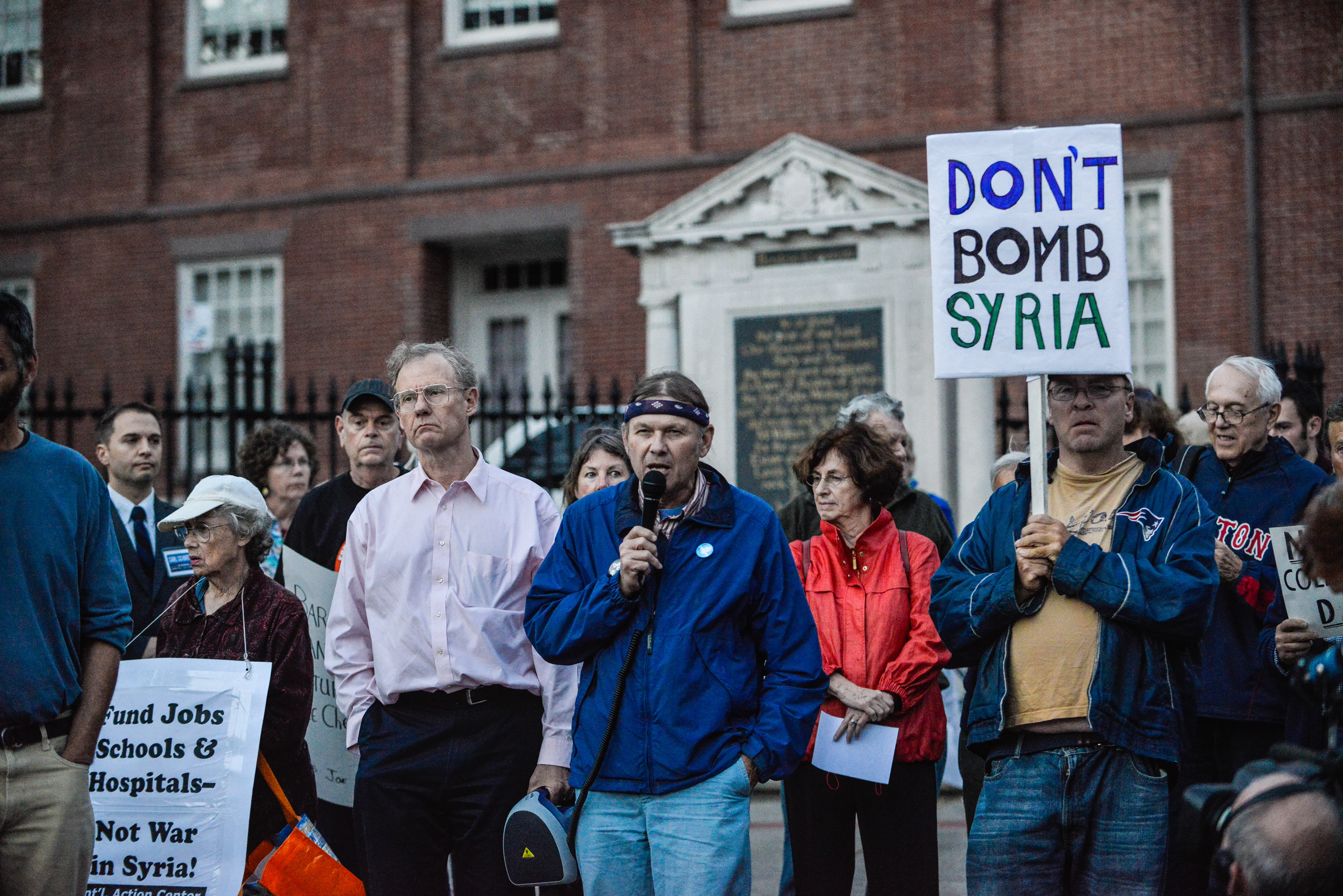
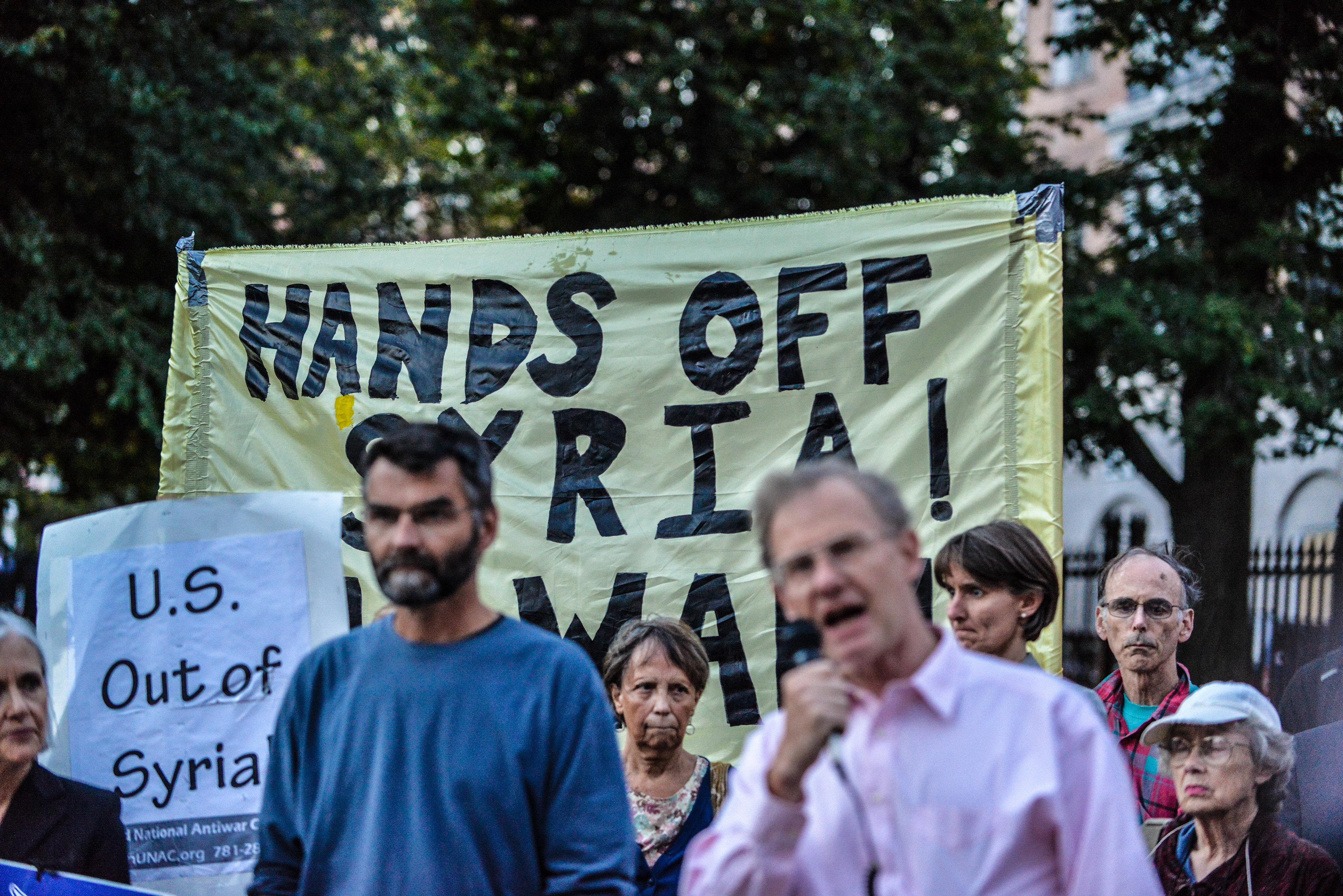
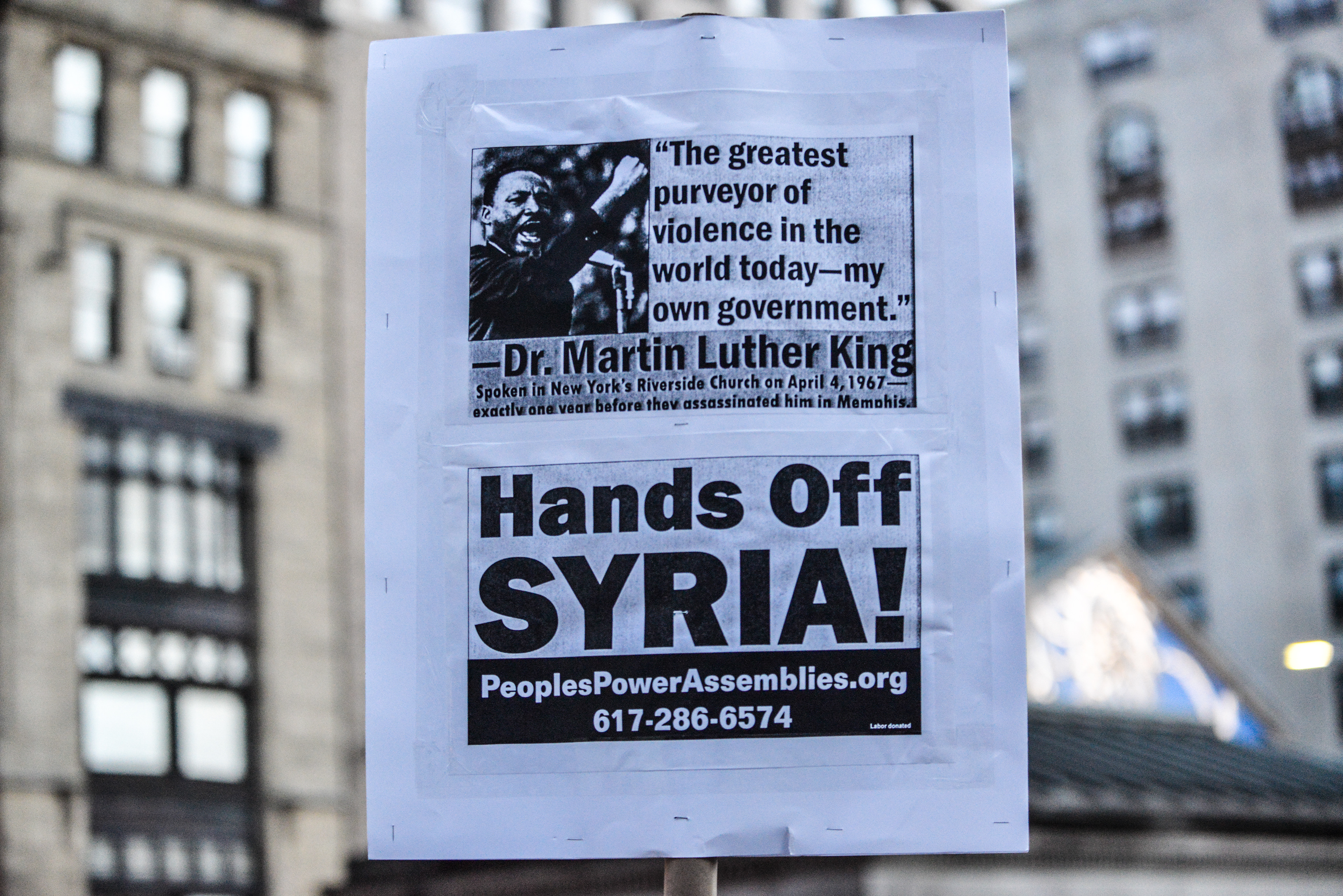
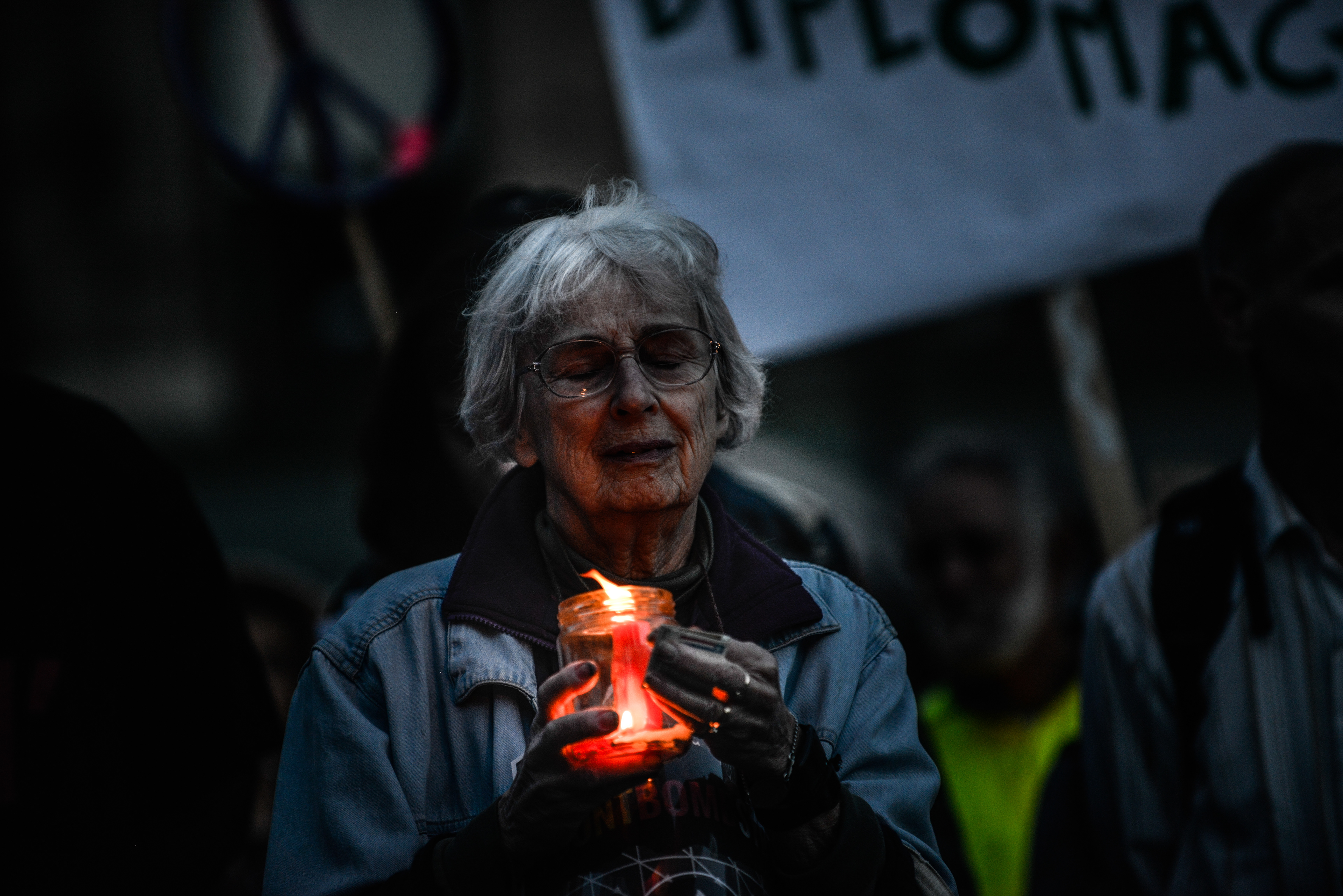


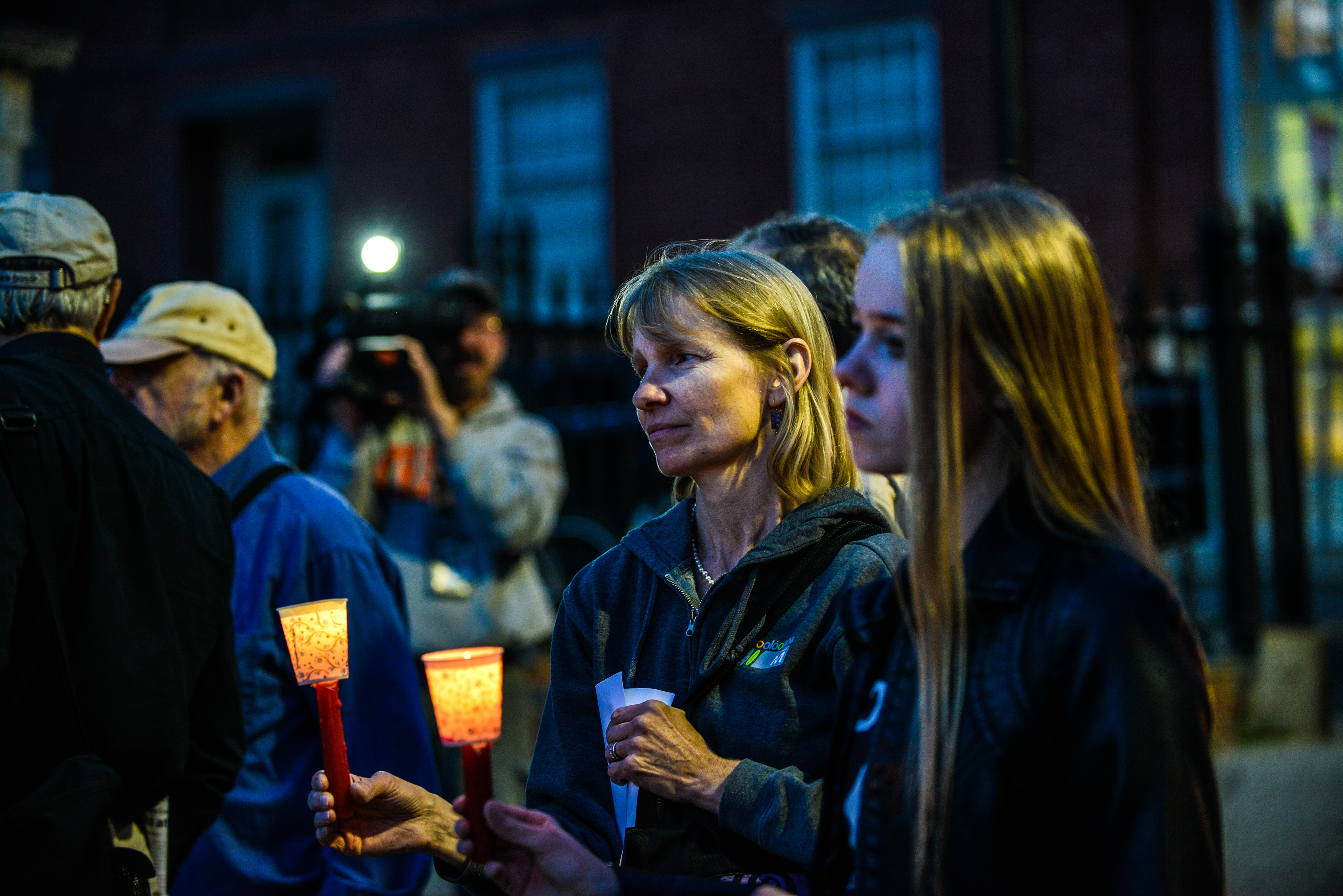
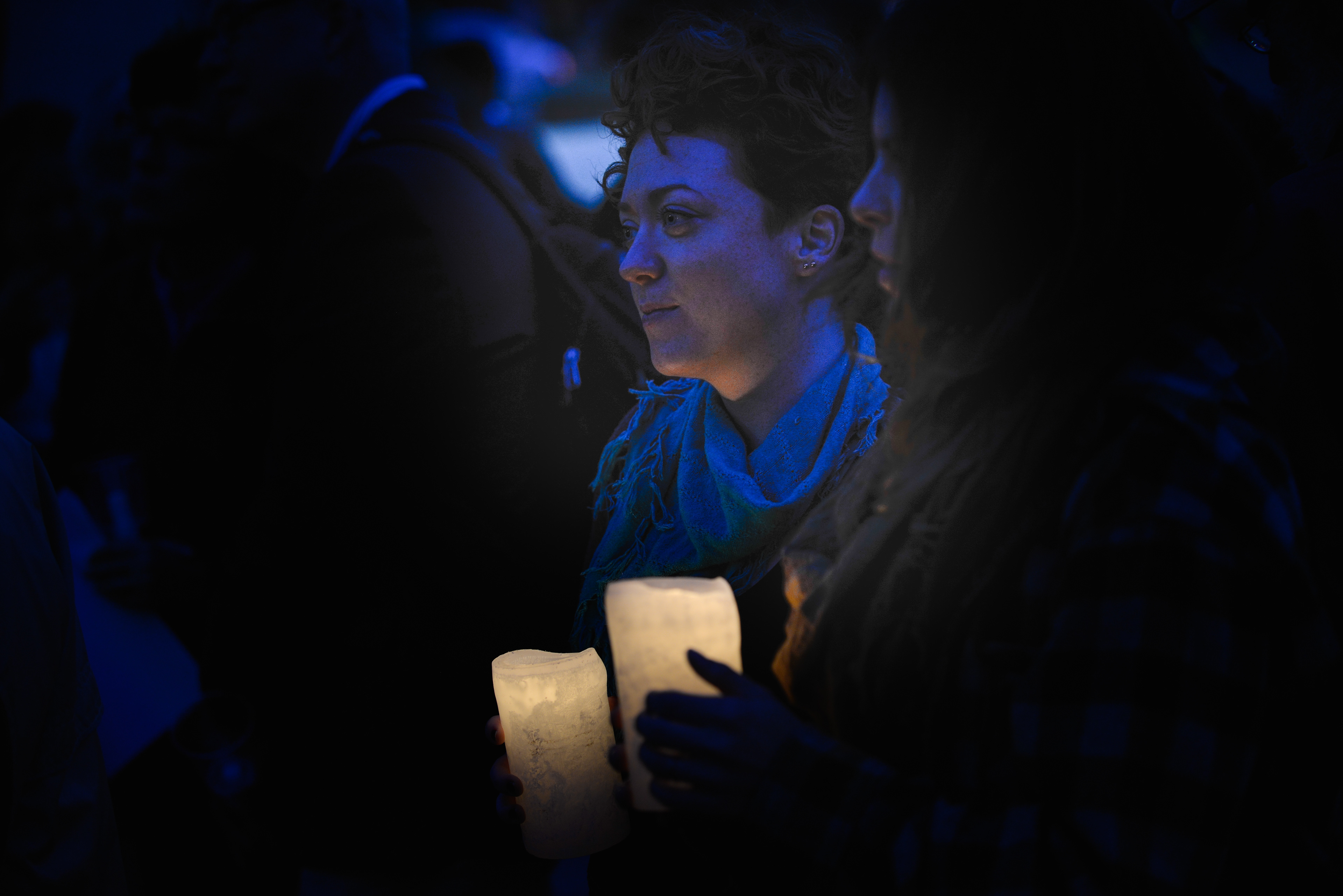

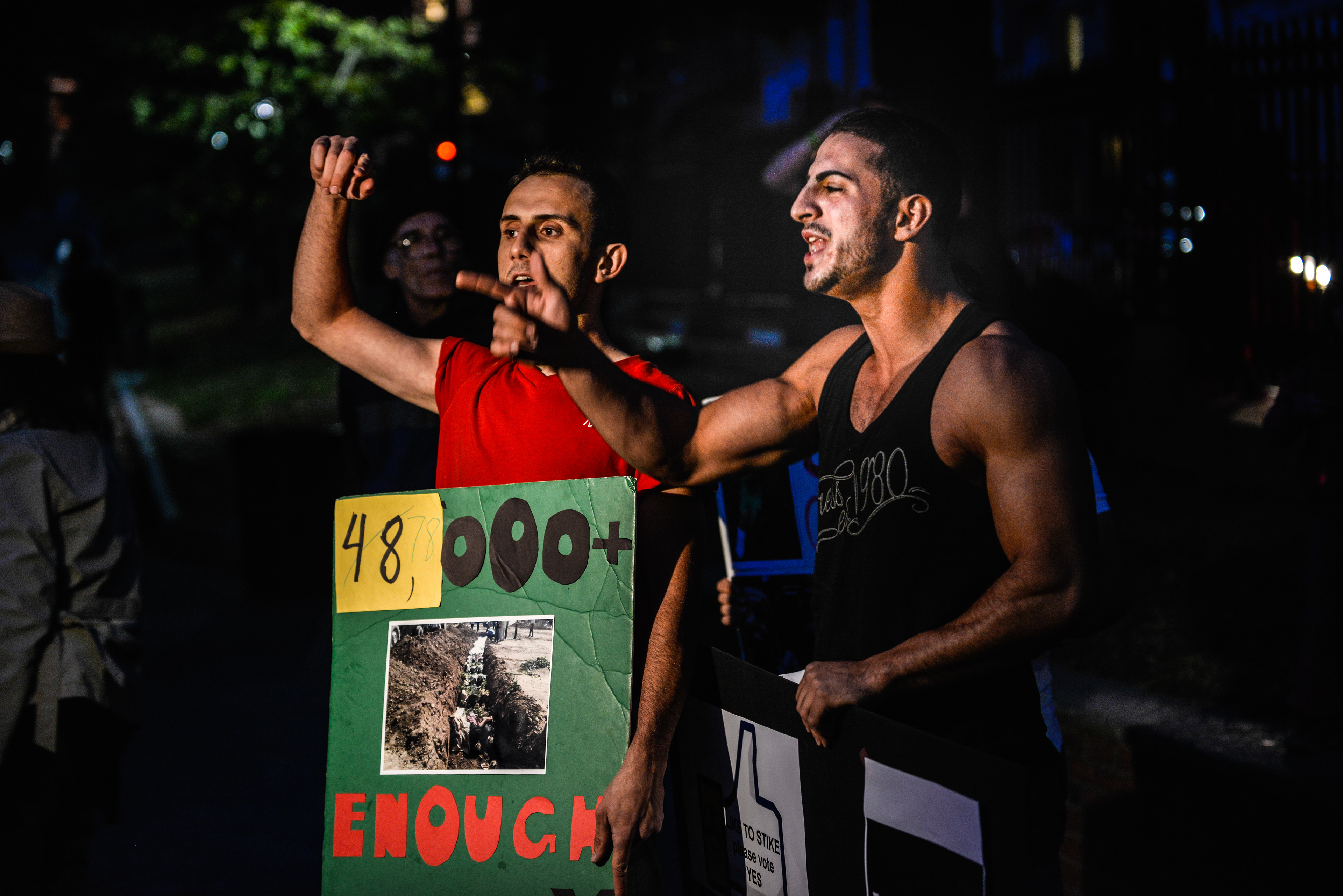
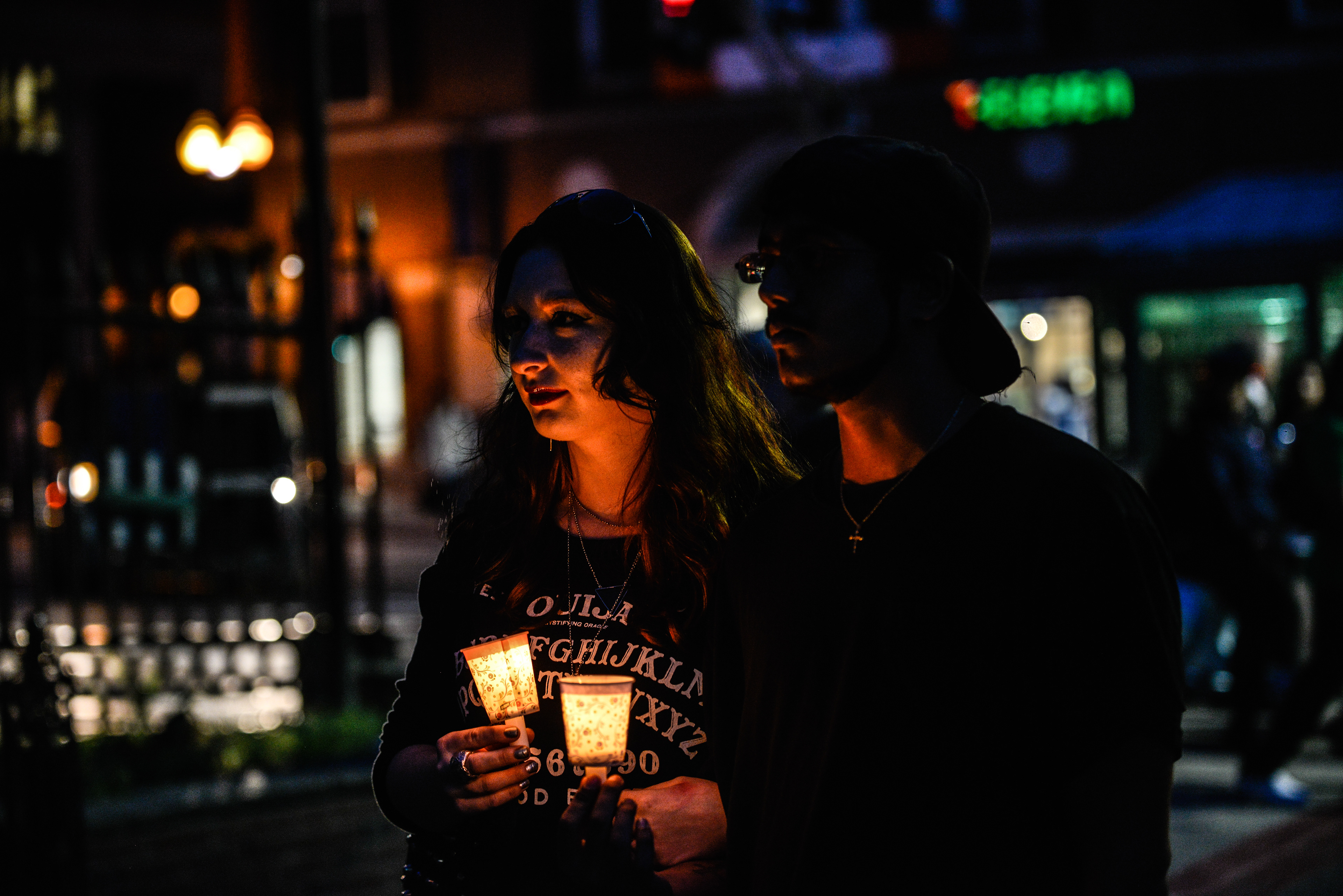
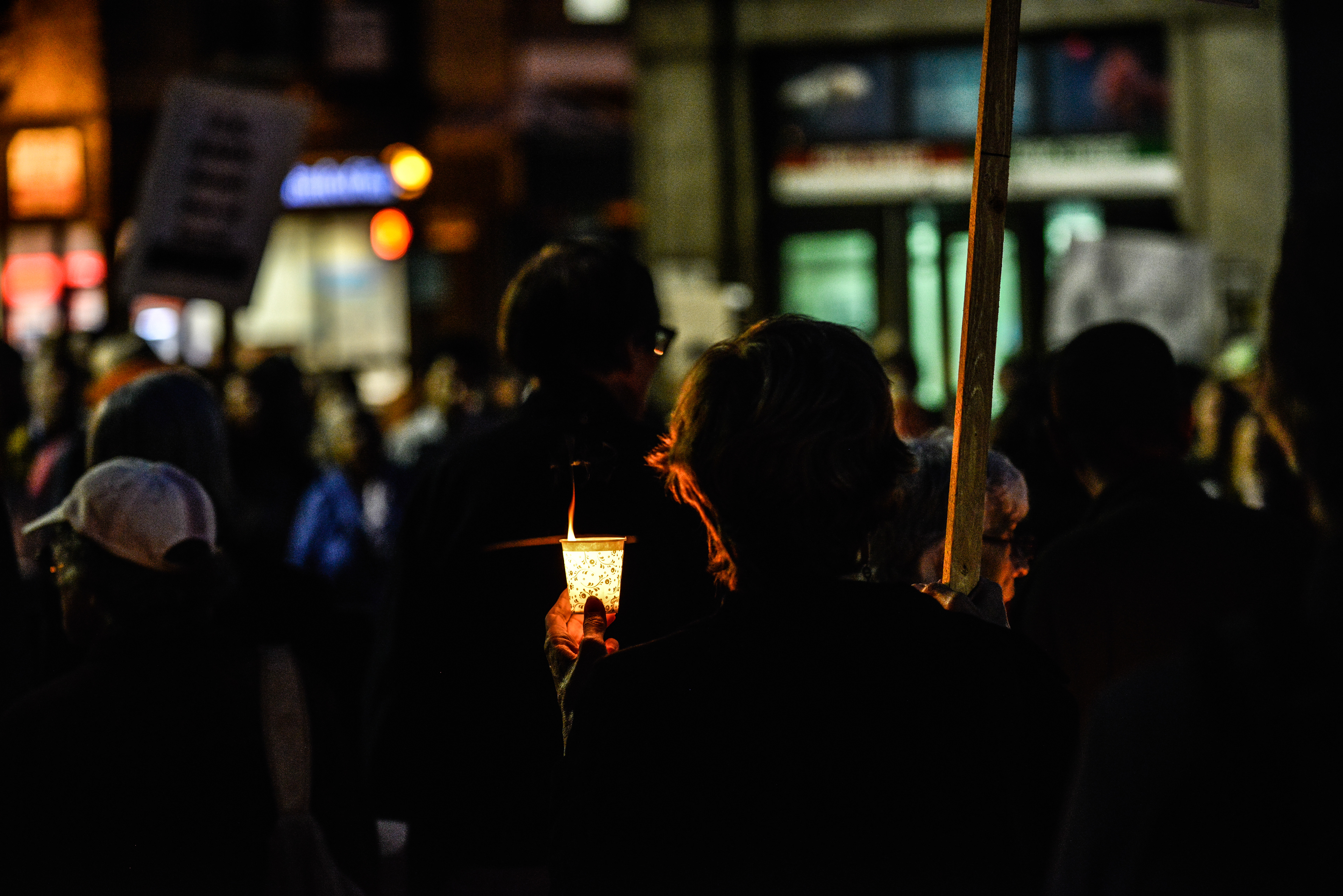
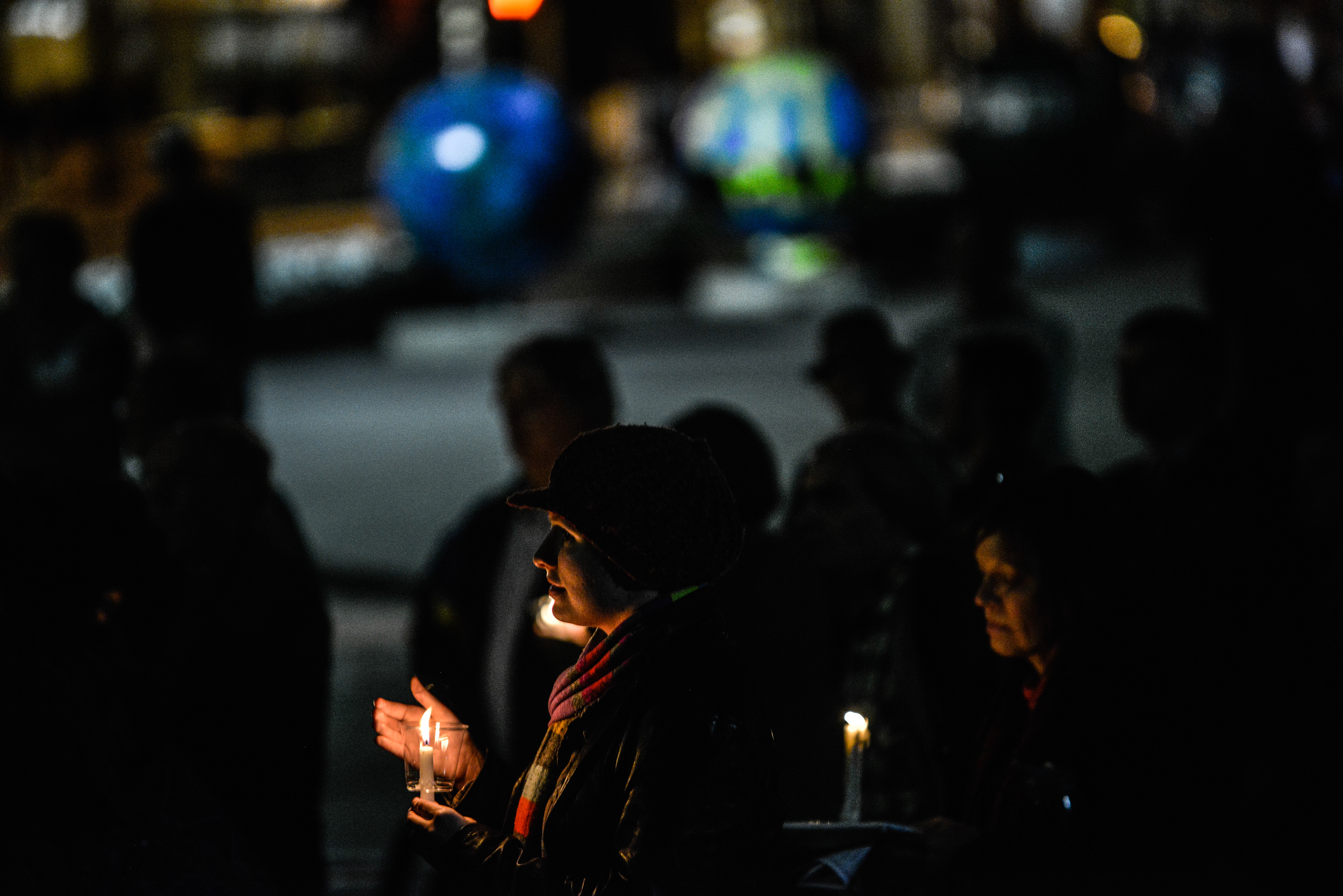
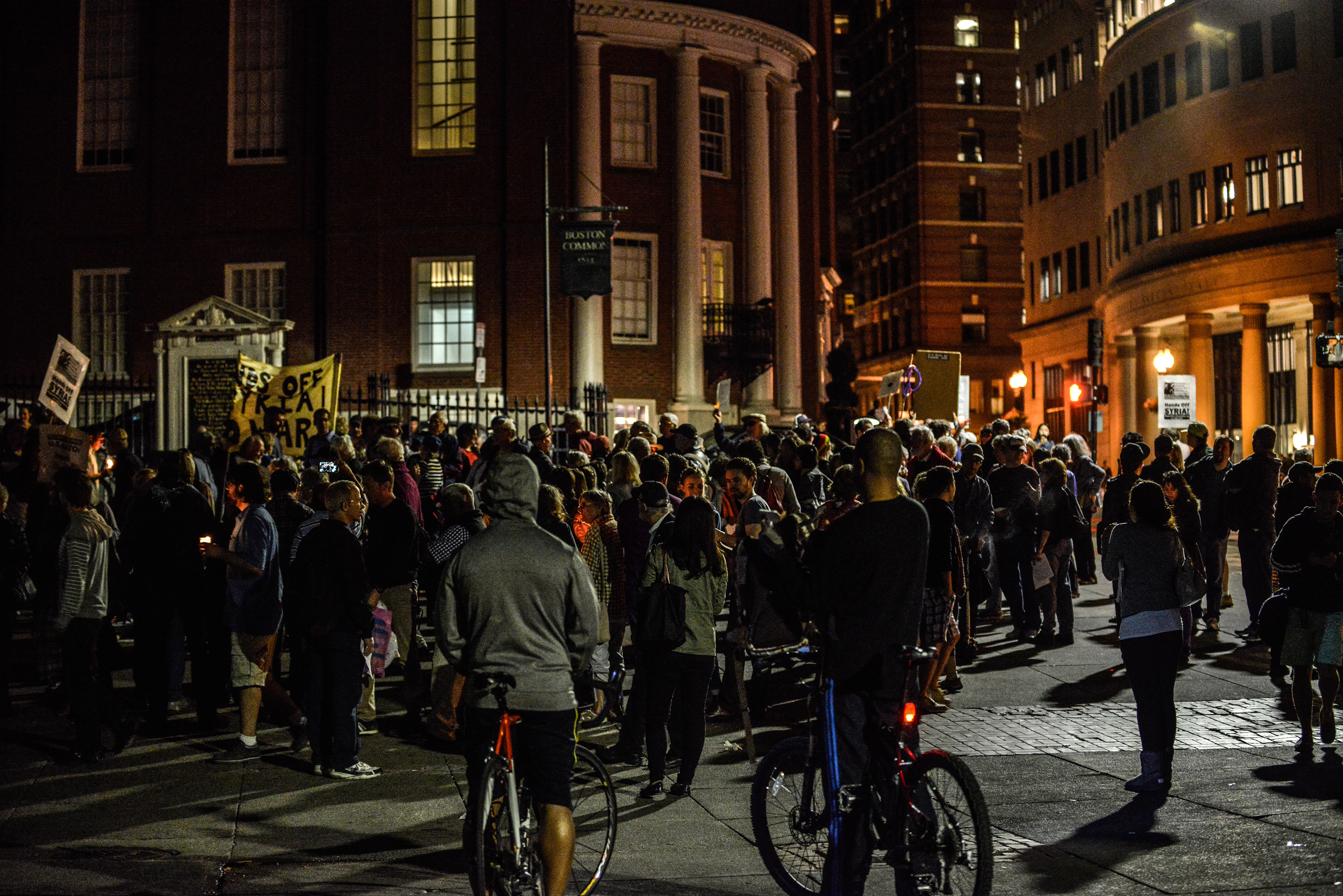

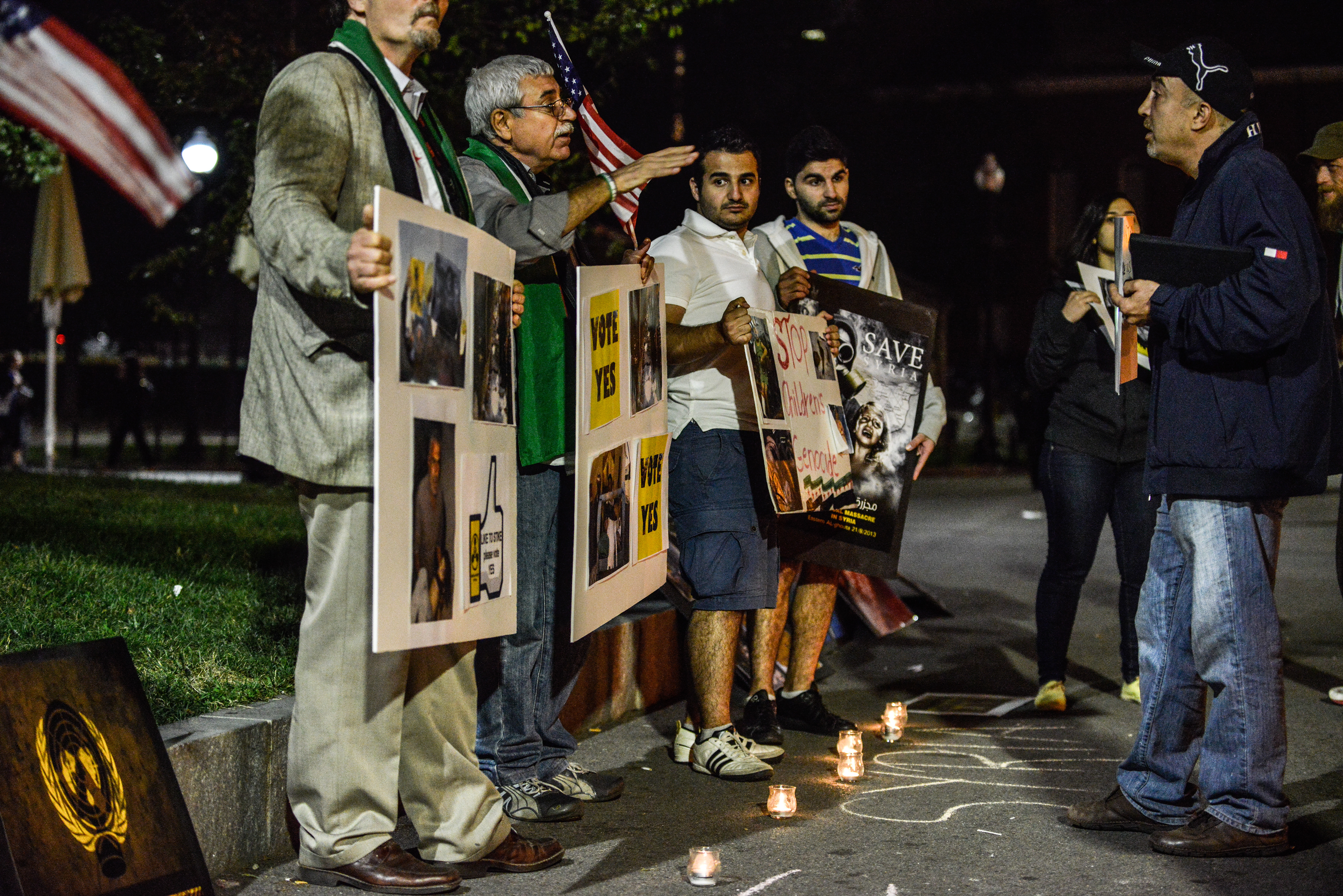
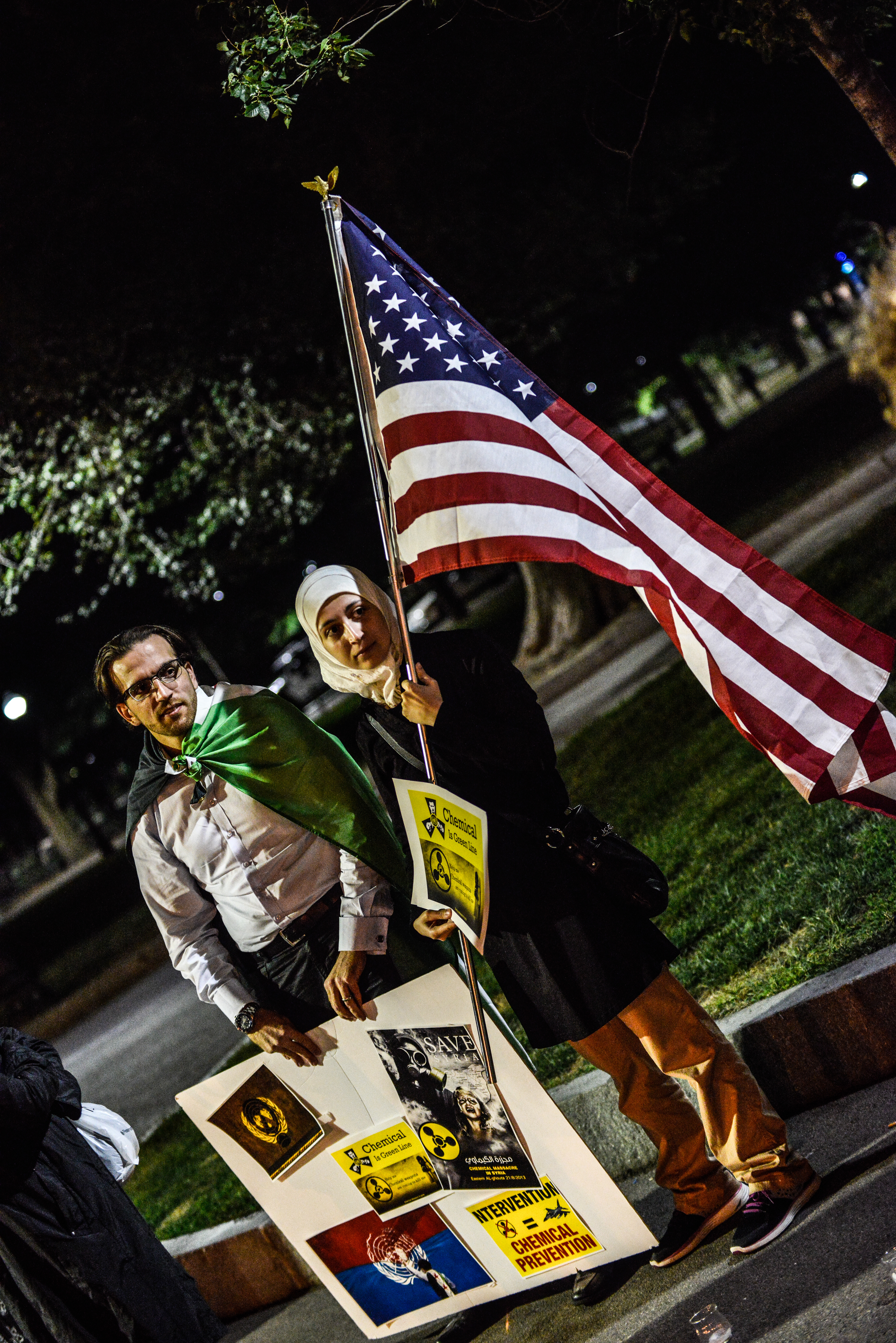
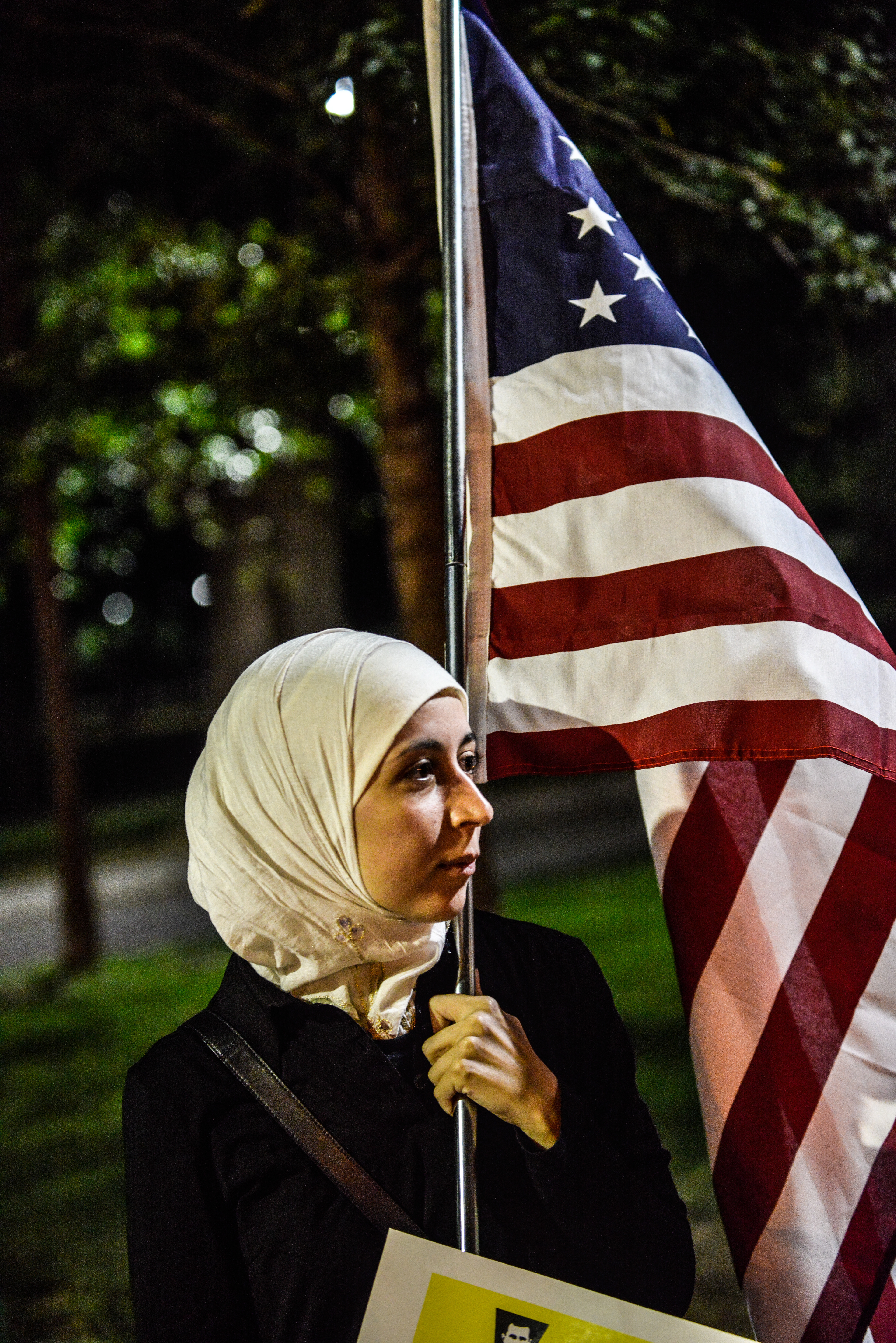
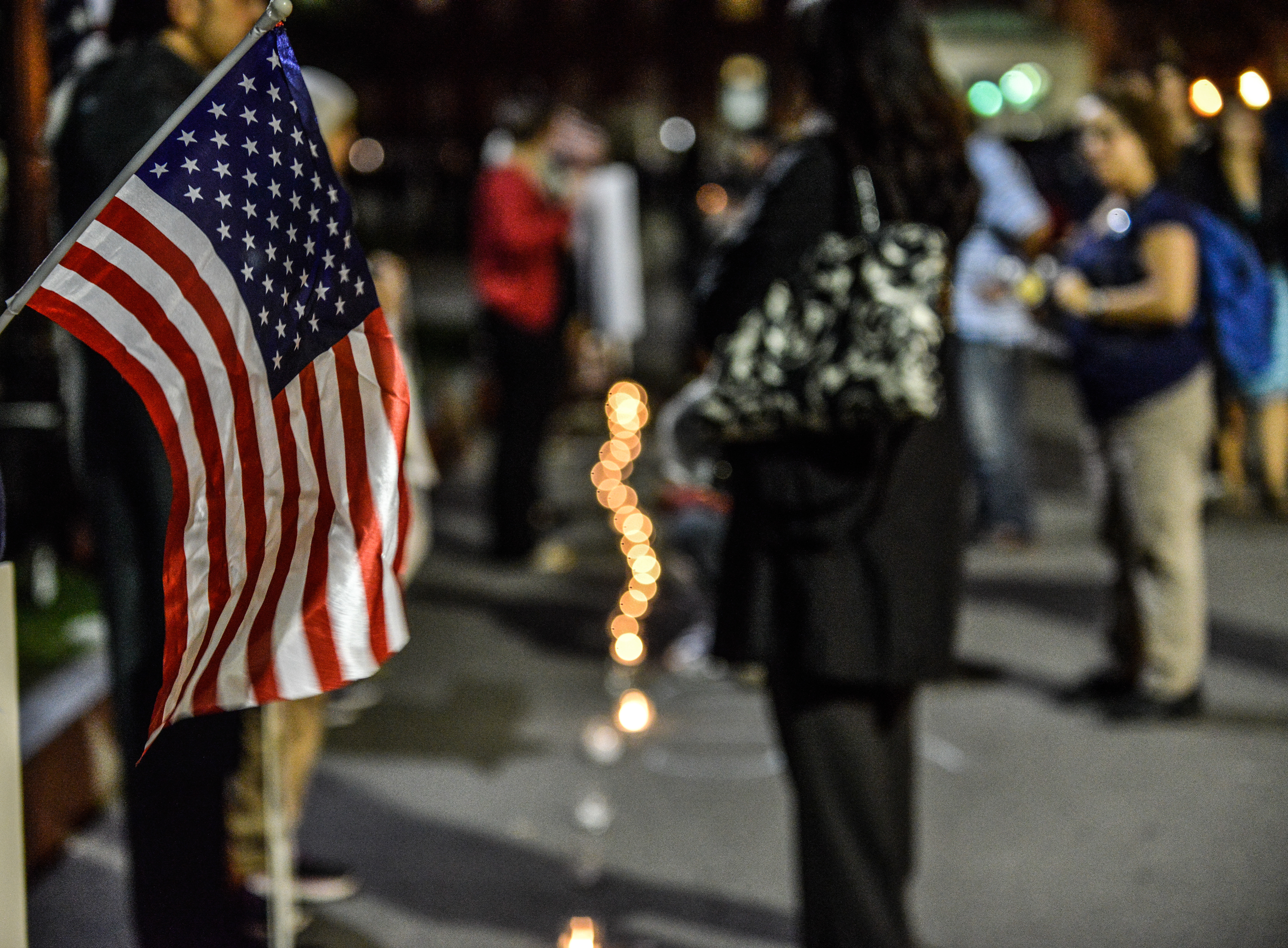
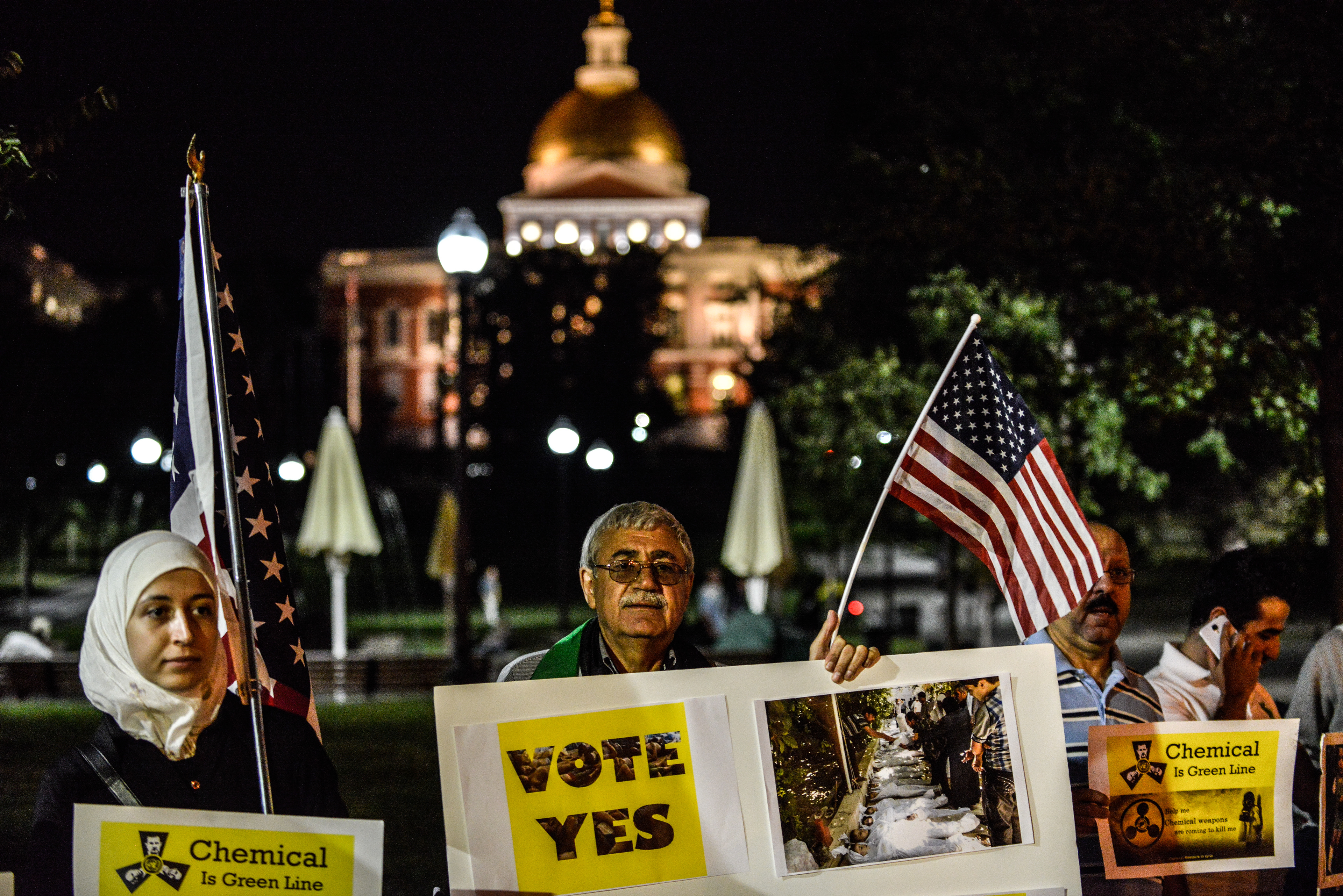
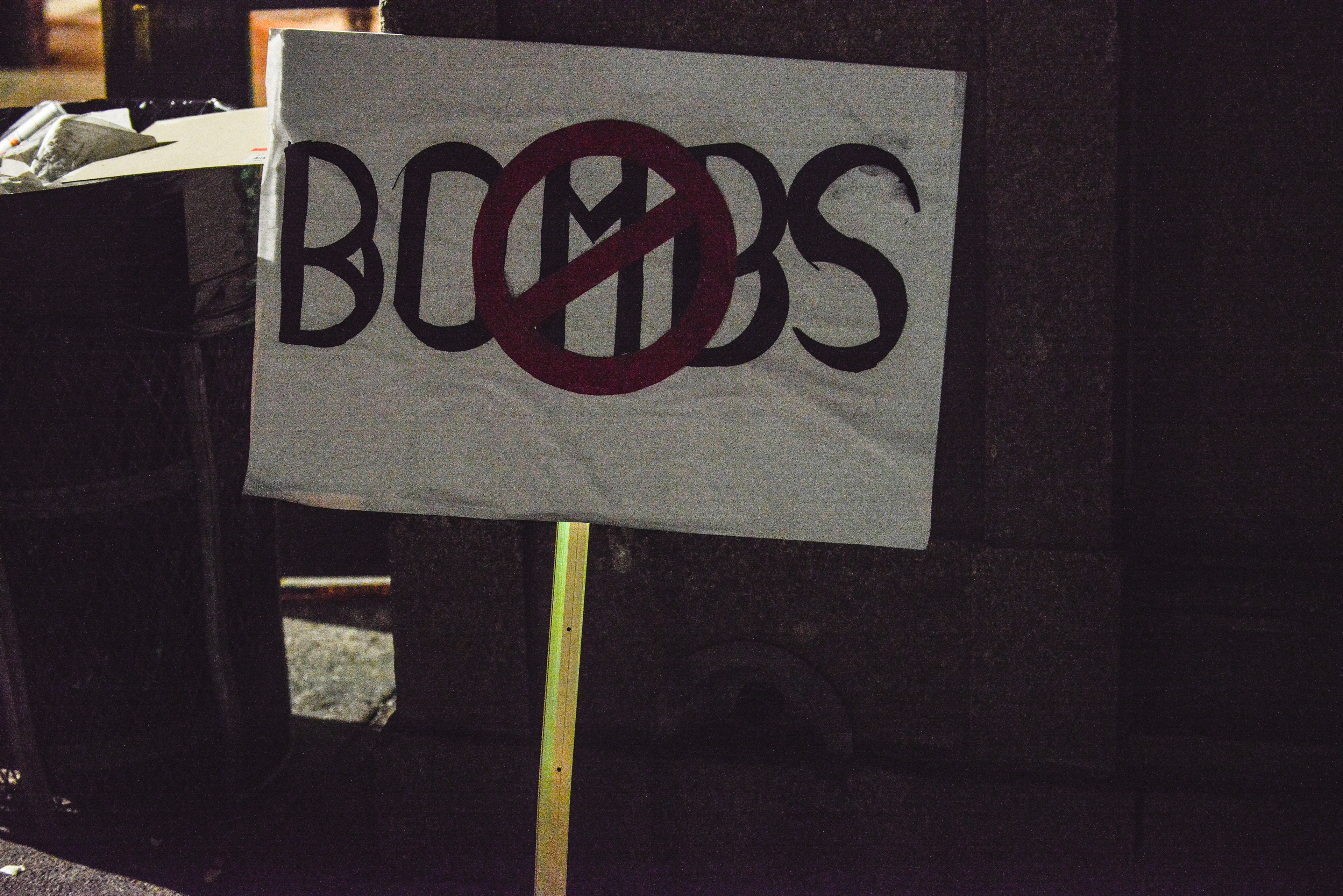
The Syrian Civil War (Arabic: الحرب الأهلية السورية, Al-ḥarb al-ʼahliyyah as-sūriyyah) is an ongoing multi-sided armed conflict in Syria fought primarily between the government of President Bashar al-Assad, along with its allies, and various forces opposing the government.[99] The unrest in Syria, part of a wider wave of 2011 Arab Spring protests, grew out of discontent with the Assad government and escalated to an armed conflict after protests calling for his removal were violently suppressed.[100] The war is being fought by several factions: the Syrian government and its allies, a loose alliance of Sunni Arab rebel groups (including the Free Syrian Army), the majority-Kurdish Syrian Democratic Forces (SDF), Salafi jihadist groups (including al-Nusra Front) and the Islamic State of Iraq and the Levant (ISIL), with a number of countries in the region and beyond being either directly involved, or rendering support to one or another faction. Syrian opposition groups formed the Free Syrian Army (FSA) and seized control of the area surrounding Aleppo and parts of southern Syria. Over time, some factions of the Syrian opposition split from their original moderate position to pursue an Islamist vision for Syria, joining groups such as al-Nusra Front and ISIL. In 2015, the People's Protection Units (YPG) joined forces with Arab, Assyrian, Armenian and some Turkmen groups, to form the Syrian Democratic Forces, while most Turkmen groups remained with the FSA.[101] Russia and Hezbollah support the Syrian government militarily, while beginning in 2014, a coalition of NATO countries began launching airstrikes against ISIL.[102] International organizations have accused the Syrian government, ISIL and rebel groups of severe human rights violations and of many massacres.[103] The conflict has caused a major refugee crisis. Over the course of the war a number of peace initiatives have been launched, including the March 2017 Geneva peace talks on Syria led by the United Nations, but fighting continues




















